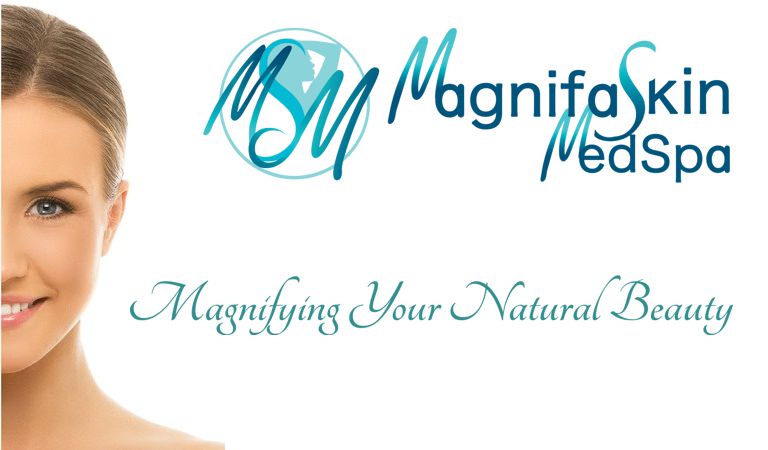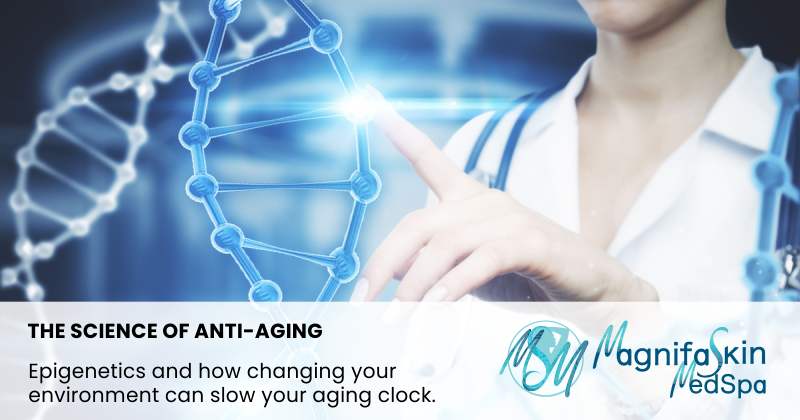
Epigenetics and The Science of Anti-Aging
In our previous post, we covered the 11 Most Popular Med Spa Treatments for 2020. This post was all about beauty and rejuvenation. But despite the old saying, beauty is much more than just skin-deep. It grows from the inside-out. Not just in terms of our physical health, but also our mental and emotional well-being. All of these things affect something called ‘epigenetics’, which controls how our body ages, and even what specific changes we’ll go through as we age.
What is Epigenetics?
We all know what genes are, even if we’re a little fuzzy on exactly how they work. If you took high-school biology, you know that every trait of your body is determined by combinations of the four nucleotide bases of DNA; Cytosine, Thymine, Adenine, and Guanine. These are arranged along our
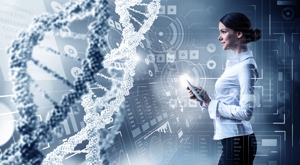
Scientists are discovering more all the time about how and why we age. It turns out that we can slow our aging clock just by making positive changes to our environment.
DNA strands, and the combinations of them determine our physical traits. How tall will we be? What color is our hair and eyes? How likely are we to suffer from certain diseases as we age? What is our ‘default’ emotional state? All of these and more are determined by our DNA. But it turns out that our DNA is in turn controlled by epigenetics.
You can think of DNA as a digital code. Just like computers are controlled by a binary code, series of 1s and 0s, you could think of DNA as ‘quaternary’ code – all the possible combinations and permutations of the aforementioned four nucleotide bases. A digital code based on 4 digits, not 2.
If all this is getting confusing, stick with us, we’ll not only make it clear, but we’ll explain exactly how spa treatments can affect our genes, and in turn, slow our aging clock. We promise.
How Does Epigenetics Affect Aging?
If DNA is a digital code, you could think of epigenetics as an analog signal. A good illustration is a CD or mp3 file (examples of a digital signal) compared to old vinyl LPs (an analog signal). LPs developed scratches and simply wore down over time. This affected the sound quality. Digital audio files, on the other hand, always sound exactly as they were recorded provided the file is readable. After all, a fuzzy 1 or 0 is still a 1 or a 0.
To relate this to our genes, you need to understand that we all have dormant genes. A lot of them! For example, we all have the genetic potential to age slower simply by turning certain genes on and others off. And epigenetics is what makes that happen.
You probably know that your DNA is nothing but long strands of the previously mentioned nucleotide bases. But there’s another important structure in the nucleus of your cells that you probably didn’t learn about in high school. Something called histones. Think of histones as being a lot like a garden hose reel. Sections of your DNA wrap tightly around these histones almost exactly like a garden hose around a reel. Any part of your DNA that’s wrapped around a histone is automatically dormant.
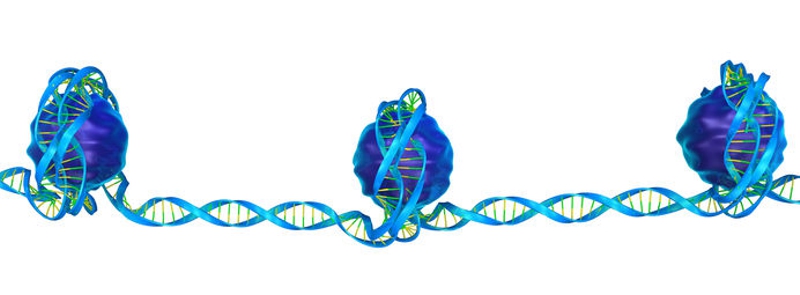
Technically, the ‘garden hose reel’ structures shown in dark blue are called nucleotides. Each one is made up of 8 histones. You probably didn’t need to know that, but we wouldn’t want to be accused of being inaccurate.
How Epigenetics Controls Our Genetic Code
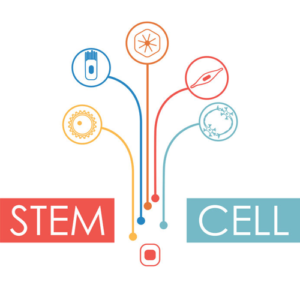
If you’ve wondered why stem cells are such a big deal, it’s because they can turned into any kind of cell in the body. This is partly achieved through epigenetics.
Now here’s the key. Remember we said that you could think of epigenetics like an analog signal? This is important. A digital signal can’t be changed. Our DNA may break down when we get very old, but the code will always be the same. An analog signal, however, can change over time. So because we can change the position of our histones through things that influence our epigenetics, we can consciously manipulate our genes to age slower, and even reduce our risk of developing diseases like cancer or Alzheimer’s as we age.
To better understand this concept, when scientists look closely at the cells of very old people they see something fascinating. Well, it might not be so fascinating to the elderly person it’s happening to, but it still serves to demonstrate how epigenetics can slow the aging process.
If a scientist took a skin cell, for example, from a person in their 20s and put it under a microscope, what they will see will be 100% a skin cell. Take that same skin cell from someone nearing the end of their life, and it might be half skin cell and half nerve cell, or partly a skin cell and partly a muscle cell. This happens because the epigenetic ‘signal’ has deteriorated and it’s switching on and off the wrong genes.
If you’ve wondered why stem cells are such a big deal, this is a major part of the reason. Stem cells have the potential to be any kind of cell. They’re just waiting for epigenetic instructions to tell them what they are. And scientists are finding ways to manipulate these epigenetic instructions so that stem cells could be used to replace pretty much any cell in your body.

Living in a positive emotional and mental environment can dramatically affect your aging process. Happy people simply live longer, healthier lives.
How Do I Use Epigenetics to Age Slower?
That’s all very nice, but until science comes up with a way to grow us a new body from our stem cells when the current one begins to wear out, we’re stuck with finding ways to manipulate our epigenetics. Fortunately, not only is this possible, it’s well-documented science.
There are a number of things that have a very positive influence on our epigenetics. We’re sure some of them will be no surprise. The old triumvirate of exercise, clean diet and proper rest is definitely a major factor. What will surprise most of you reading this is that there are other major factors that are not so obvious. The good news is, most of these are things that don’t require nearly as much self-discipline as exercise or eating a squeaky-clean diet. In fact, they are mostly things we want to do because they make us happy, lower our stress levels, and cause us to feel better about ourselves and our lives.
Environment is Key
When we talk about ‘environment’, it’s important to define exactly what we mean. We’re not just talking about where you live and work, or about the climate here. It’s more than that. We’re also talking about how you feel. How much stress is there in your life? Do you feel positive about yourself or are you beating yourself up about something? Do you have good social interactions, or are you struggling in your home and work relationships? Are you healthy or living with chronic pain or disease?
Our physical environment does play a role. Getting too much sun, or not enough, can be a factor. Spending too much time indoors can be a negative. Does the rainy season get you down? Do the long winters give you Seasonal Affective Disorder? Most of the epigenetic effects of our environment are not directly physical, though. It has more to do with how our environment (physical, social, emotional and mental) affects our mood and outlook on life.
Our epigenetics change our genes to match our environment. This is our genetic adaptability at work. Unfortunately, epigenetics isn’t ‘smart’. It doesn’t necessarily respond to these environmental factors as we would like. For example, it doesn’t respond to chronic stress, clinical depression or chronic illness by making us more resilient to these things. In fact, just the opposite. The more time we spend in these negative states, the more our epigenetics change our genes to make those states ‘natural’ for us.

The Horvath clock was discovered by Steve Horvath, a geneticist at the University of California, Los Angeles. The Horvath clock is the most reliable method found to date to measure our actual biological age as opposed to our chronological age. If you have an hour to spare and are really curious about the Horvath Clock, click here for Dr. Horvath’s full explanation on Youtube.
From Bad to Worse
It gets worse, too. The very epigenetic changes that occur as a result of negative environmental influences are the same ones that speed the aging process. They make our cells age faster, thus needing to be replaced more often. There is a theory of aging that says that if we can extend the life span of our cells, we, in turn, will extend the lifespan of our bodies. While not completely proven, measures such as the Horvath clock seem to lend support to this idea.
Better Environment = Slower Aging
Obviously, then, if we can improve our environment and, as a direct result, positively influence our self-image, happiness, stress levels, health and outlook on life in general, we can influence our epigenetics to keep our youthful genes switched on, and delay the points at which our epigenetics begin to break down.
We’re a med spa, not psychologists or life-coaches, so we can’t tell you how to fix or improve everything in your life. But we can help you feel better about yourself, improve your health, provide treatments to decrease discomfort, elevate your mood and energy levels and even make you more resistant to illness and chronic conditions associated with aging.
In our next post, we’ll cover the most popular medical spa treatments for your health in 2020. Stay tuned!

Be the first to know about new Specials, and blog posts with valuable free information on skin care, beauty and wellness. Sign up below and you'll receive an email notice of new specials as well as new posts. You can unsubscribe at any time.

